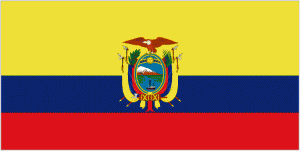August 10

Today is Ecuador’s National Day, and the event it celebrates is considered the first cry for independence in Latin America. It took place in Quito, Ecuador, on August 10, 1809.
South America’s “Primer Grito de la Independencia” (first shout for independence) was ironically a show of fidelity to Spain. On the other side of the Atlantic, Napoleon of France had invaded Spain and installed his brother Joseph Bonaparte on the Spanish throne in 1808.
When the news spread to South America, the criollos (Spanish descendants born in the New World) initially called for independence as a show of support. On August 10, 1809, they declared their unity behind the former King Ferdinand of Spain and they refused to recognize the legitimacy of officials appointed by the Bonaparte government. Over the next several years, several similar “gritos” would be issued by Latin American assemblies all the way from Mexico to Argentina.
But when the Spanish regained control of their own country, and turned their attention back to South America, the criollos who had been fighting for their freedom had no intention of turning back.
Independence however would be a long time coming. The Wars of Independence from Spain raged throughout South America for over a decade.
With support from the armies of Simón Bolivar and José de San Martín, Ecuador’s national hero Antonio José de Sucre eventually liberated the Quito region from Spanish forces in 1822. The final Battle of Pichincha, fought atop the slopes of a towering volcano overlooking Quito, took place on May 24 of that year.

In the end, the long struggle worked out, and all told, the Ecuadorians would get not just one, but four annual holidays out of the War of Independence: today’s holiday, Independence of Guayaquil (October 9, 1820), Independence of Cuenca (November 3, 1820), and the Battle of Pichincha (May 24, 1822).
Even though the region was liberated, Ecuador’s own independence as a sovereign nation wouldn’t come for another eight years, during which Quito and the surrounding provinces were considered part of Bolivar’s “Gran Colombia.” The three southern provinces of Gran Colombia became “Ecuador”—so named because it straddles the equator—in 1830.

